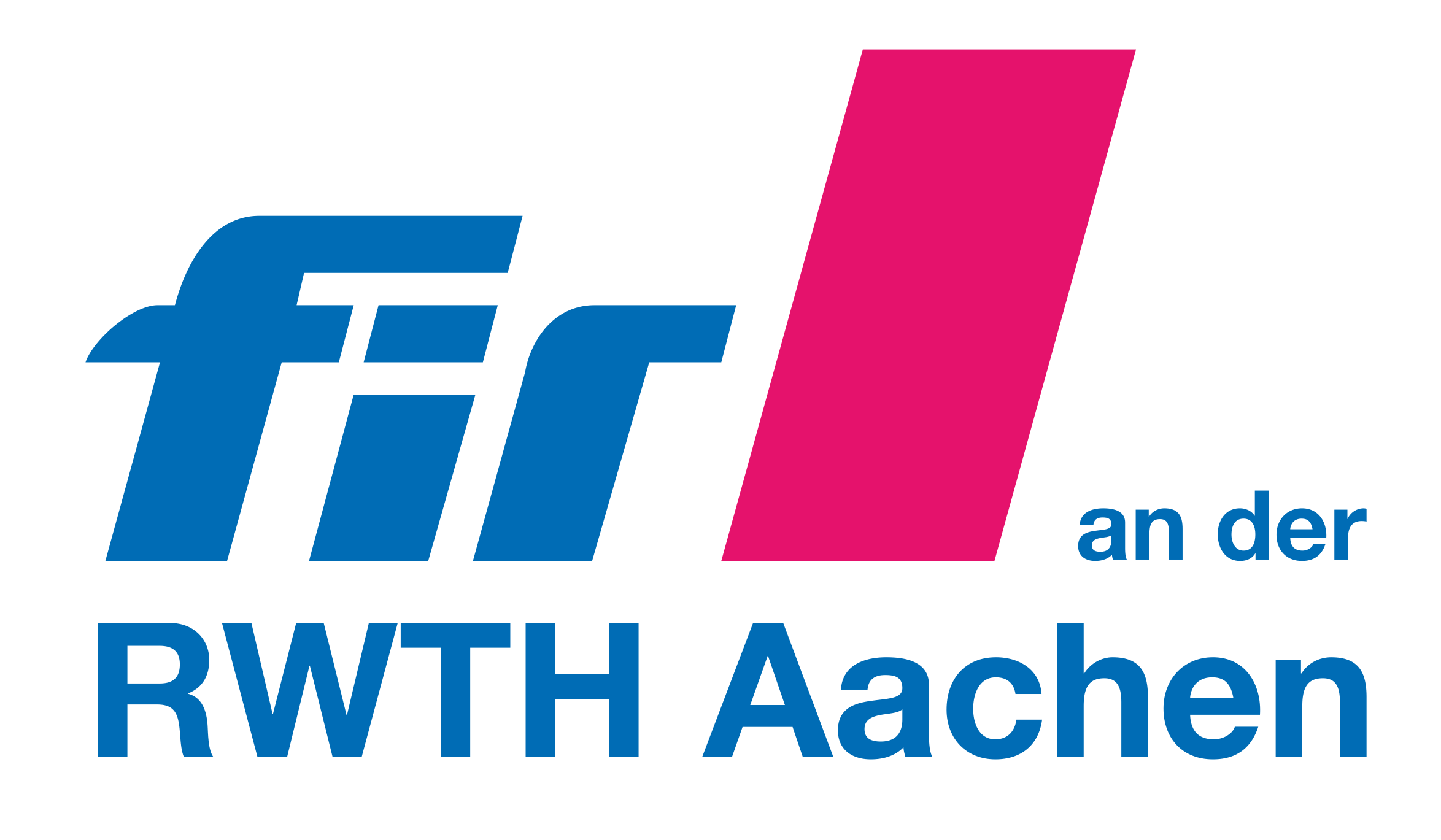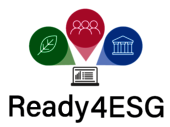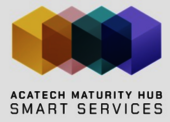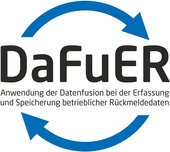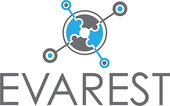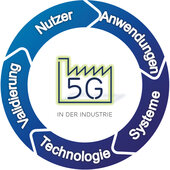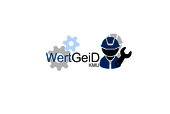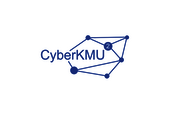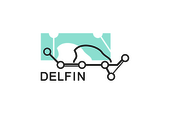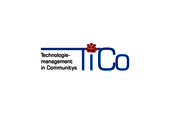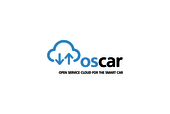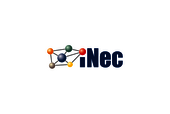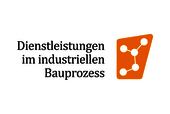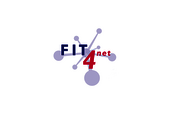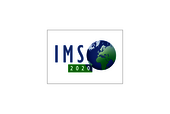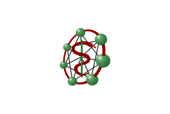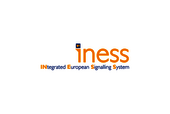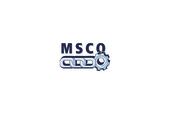Research Activities at FIR
Here you can find a list of research projects which are or have been carried out by FIR:
Please filter the list according to the criteria that are relevant to your inquiry.
Hyperautomation for software-based end-to-end automation of order processing in manufacturing companies
The research project aims to support companies in systematic and technology-based decision-making for the design of a software-based automation landscape. Organizational, procedural, and human aspects are taken into account equally. The developed approach is intended to identify both suitable processes for existing technologies and suitable technologies for existing processes in order to optimally promote automation along the order processing process.

Development of a user-friendly digital navigator to support SMEs in the implementation of hybrid working models
The aim of the 'HyWoNa' research project is to develop a user-friendly digital navigator that supports small and medium-sized enterprises (SMEs) in the implementation of hybrid working models. Specific requirements in the areas of people, technology and organization are taken into account in order to enable tailor-made solutions for different business contexts. The focus is particularly on indirect areas of manufacturing companies and the IT sector, as hybrid working models are particularly relevant here.

Progress Towards Industry 5.0. A Smart Study on Analysis and Identification of Practices, Drivers, Success Factors and Obstacles of Transitions Towards Industry 5.0
The ‘PROSPECTS 5.0’ project aims to promote the adoption of Industry 5.0 principles such as human-centricity, sustainability and resilience and to facilitate the transition to Industry 5.0 for SMEs, start-ups and scale-ups in various sectors.

Cybersecurity Appliance to enhance the Security of Living Environments
The joint research project 'CASTLE – Cybersecurity Appliance to enhance the Security of Living Environments' aims to improve the confidentiality, availability and integrity of IoT home networks and building automation in a user-friendly way.

Boosting VET excellence in Work Based Learning to support SMEs of Latin America and Europe in their transition to Sustainable Value Chains in the Automotive sector
The aim of the 'VET4CHAINS' research project is to develop and implement a high-quality work-based learning (WBL) training solution aimed at supporting SMEs in the automotive industry in their transition to sustainable value chains.

Enabling manufacturing companies to independently assess and design the adaptability of a socio-technical production information system by means of a web-based self-assessment
The aim of the 'VIper' project is to enable manufacturing companies to independently evaluate and design the adaptability of a socio-technical information system for order processing and production.

Digital Transformation of Circular Economy for Industrial Sustainability
The aim of the research project 'DiCES' is to develop a data-based integrated value creation system of the multidimensional circular economy for manufacturing companies, which makes true circular economy completely part of the operational order processing of companies.

Digital Stimulation of Hygiene and Optimization Measures for Hospital Operations
The aim of the 'DiSH-O-Klin' research project is to create an improved hygiene situation in medical facilities.

Data-based route planning in road freight transport with different energy supply technologies
The aim of the 'DRivE' research project is to develop the technical prerequisites for eco-efficient, data-based long-distance truck transport with alternative drive systems (open to all technologies). Disadvantages of alternative drives in terms of network density of charging / refueling infrastructure as well as lack of range are to be compensated by data-based vehicle transfers. To this end, real-time data from charging / refueling infrastructures and vehicles will be integrated into route planning. The solution, including the infrastructure, is to be pilot-tested on a connecting route between the German lignite mining regions.

Sustainable Agriculture through Artificial Intelligence and Digital Technologies
The aim of the research project 'SAAT' is to demonstrate the technical and economic feasibility of sustainable mixed crops in agriculture. For this purpose, a field planning tool based on explainable AI as well as an AI-controlled sorting robotics module for field crop sorting on autonomous harvesting systems will be developed and the economic efficiency and sustainability of mixed crops compared to monocultures will be measured by means of multidimensional monitoring.

Subscription Business Case Calculator – Evaluation of customer suitability and profitability calculation of subscription models for entry and success in the SME-subscription business
The aim of the research project 'SCALA' is to develop a subscription business case calculator. This involves an evaluation of the customer suitability and profitability calculation of subscription models for entry and success in the SME subscription business.

Prognosis-based competence evaluation
The aim of the 'pro-kom' research project is to enable SMEs to identify competence deficits and future competence needs at an early stage and to close existing gaps. With the help of a competence forecasting tool, SMEs should thus be enabled to maintain their competitiveness in the current, continuously changing world of work.

Development of a design approachof decentralized workplace concepts using SME-specific management tools
The aim of the research project 'DecentraLEAD' is to enable SMEs to successfully manage decentralized workplace concepts for cognitive professions.

DATA Monetization, Interoperability, Trading & Exchange
In the research project 'DATAMITE', 27 partners from 13 countries are working on a modular, open-source and cross-domain framework for data use. It aims to improve data usage in all areas: Exchange, Interoperability, Monetization and Commerce. To this end, 'DATAMITE' brings together the key players in the data value chain.

Production – Development – Optimization: Reduction of manufacturing program variance using data-based similarity analysis to increase the profitability of SMEs
The aim of the 'PrEvelOp' research project is to enable SMEs to identify potential and measures for reducing manufacturing program variance while maintaining product diversity.

AI-driven assistance and prognosis systems for the sustainable deployment in the intelligent distribution grid
The aim of the research project 'AProSys' is to sustainably transform sensor-based condition monitoring into a cognitive assistance system with a focus on AI-based prognostics for application within the distribution grid in order to successfully shape the energy and mobility transition in Germany.

European Digital Innovation Hub Rheinland
The aim of the research project ’EDIH’ is to further develop SMEs in the Aachen region in terms of their capabilities in the areas of digital skills, artificial intelligence and high-performance computing through funded training, consulting services, and information events.

Decarbonization and digitization maturity assessment to create implementation roadmaps on the way to digitally-enabled and greenhouse gas-neutral energy utilities
The aim of the ‘Roadmap.SW’ research project is to support municipal utilities and companies on their way to greenhouse gas neutrality by combining digitization and decarbonization in an interdisciplinary approach for the first time and deriving an individual, scenario-based implementation roadmap for digitally driven transformation in the local energy system on this basis.

Automated condition monitoring in networked production environments using autonomous indoor drones
The aim of the research project 'SmartDroneWatch' is to increase efficiency and safety in production operations by integrating a fully autonomous drone-based monitoring system into industrial production environments. Here, the focus is on analyzing the application potential of localization and collision avoidance technologies as well as data transmission standards.

Transformation-hub for an improved, more sustainable usage of cars through service and digital business models
The aim of the research project 'DiSerHub' is to secure the competitiveness of the German automotive industry by establishing an information platform that contributes to the transfer of knowledge and the networking of actors in the automotive industry with a sustainable transformation concept and thus works on an improved, more sustainable use of automobiles with the help of digital services and digital business models.

Open Circular-Collaboration-Platform for Sustainable Food Packaging from Plastics
The aim of the research project ‘COPPA’ is to develop an open and scalable Circular Collaboration Platform (CCP) with functionalities that create benefits for recyclers, plastic reprocessors / converters, packaging manufacturers and food retailers.

Decision Model for the Selection and Prioritization of Benefit-optimal Business Analytics Projects in SMEs in the Manufacturing Industry
The aim of the 'BAValue' project is to optimize the benefits of business analytics, particularly in SMEs in the manufacturing industry, by means of a suitable decision model – mapped as a practical IT tool.

Intelligent Production Planning and Control for Laser Beam Melting
The research project IPPSLaBeM – Intelligent Production Planning and Control for Laser Beam Melting – aims to develop an automated and optimized solution approach for operational application systems that meets the specific requirements of additive manufacturing (AM). The aim is to significantly reduce the manual effort for production planning and to reduce the costs of laser beam melting components by increasing machine utilization.

Strategic and case-specific Cyber-Security – for Industry 4.0 in SMEs
The goal of the 'CyberSecurity 4.0' project is to develop an SME-oriented cybersecurity framework and tools and guidelines as well as a learning environment specifically for Industry 4.0.
5G networks for autonomous and resilient rural applications
The goal of the 5G.NATURAL research project is to implement an autonomous swarm of agricultural machines networked by means of 5G and to provide a business case for rural 5G networks.

Procedure for the evaluation and selection of AI competences in SMEs
The objective of the VoBAKI research project is to enable SMEs to independently identify the processes and necessary competencies in the lifecycle of an AI use case and to derive the sourcing strategies that are suitable for them.

Human Factors Competence Center for Employment in Industrie 4.0
The aim of the research project ‘AKzentE4.0’ is the humane introduction and implementation of Industry 4.0 concepts and technologies in small and medium-sized enterprises (SMEs) in the Aachen region. For the sustainable anchoring of results, a “Human Factors Competence Center for Employment in Industrie 4.0” is being established.

Internationalization of Blended-Learning Continuing Education in Industrial Process Design and Optimization for the Production Sector in Spanish Speaking Latin America
The core objective of the joint project Y-Mas is to create a sustainable and comprehensive training program for Spanish-speaking Latin America in the field of industrial production management for skilled workers and middle and lower management in manufacturing companies. Y-Mas thus compensates for existing weaknesses in regional education and training on this topic and supplements these with content not yet available, for example, around the transformation to Industry 4.0.

Learning Journey. Individuell. Informell. Mobil.
The LIMo research project aims to provide knowledge in a demand-oriented manner in the organization and implementation of in-company training. Moreover, it intends to create new learning arrangements that individually promote the learning process and the self-learning competence of the learner, as well as to integrate current mobile learning technologies into the individual's everyday working life.

Design of an introduction concept of chatbots in B2B customer service for SMEs in the mechanical engineering industry
The aim of the research project "Chatbot in Service" is to develop a practical introduction concept for chatbots in B2B services, especially for SMEs of manufacturing companies. Important aspects that will be taken into account are a technology overview, data management, cost-effectiveness and acceptance.
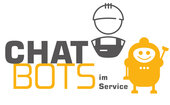
Series production of electrolysers in the gigawatt range
The aim of the SEGIWA research project is to develop the basis for transferring the SILYZER 300® series from manual production to series production. In line with the national hydrogen strategy, the aim is to achieve a low-friction market ramp-up. One focus here is on the design and implementation of largely automated production processes and their linkage in a higher-level production concept.

Concept development for the implementation of the agile management system Objectives and Key Results (OKR) in small and medium sized companies
The aim of the OKReady research project is to develop a concept for introducing the Objectives and Key Results (OKR) agile management system in small and medium-sized enterprises (SMEs). OKR provide an effective way to improve prioritization capability as well as communication and transparency in the company to strengthen employee engagement. OKR enables SMEs to align the activities of their employees with a common vision and to transparently map corporate goals across all hierarchical levels.
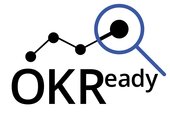
Establishment of a platform to improve the forecasting capability and increase the utilization of SMEs in the German stone and earth industry
The aim of the PROmining research project is the company-neutral conceptual design, development and realization of a web-based demonstrator to improve the forecasting capability and increase the capacity utilization of SMEs in the German stone and earth industry. The planned demonstrator of a platform solution is intended to create an incentive for SMEs to tackle the digital transformation and improve internal data management. The project is being carried out by FIR e. V. at RWTH Aachen University in cooperation with the Institute of Mineral Resources Engineering at RWTH Aachen University.

Data-based process control along interplant process chains
The aim of the research project “E2E-Parameter” is to enable companies in a supply or process chain to exchange data across companies.
Artificial intelligence for conducive learning industrial assistance systems
The aim of the research project KI-LIAS is to develop a procedure for acceptance-based application decision-making, development, introduction and use of AI applications in manufacturing companies that promote learning.

Standardized Connection of Multiple ERP Providers and Industrial Companies to the SCSN Eco System
With the project EDI-Multiply the FIR actively supports the EU research project Market 4.0 regarding the integration of ERP systems and platforms in the context of EDI.
Sustainable use of the efficiency potential of Robotic Process Automation (RPA) in SMEs by promoting acceptance
The goal of the RAcceptance research project is the sustainable use of the efficiency potential of robotic process automation (RPA) in SMEs by promoting acceptance. Those factors are determined and addressed which positively as well as negatively influence the acceptance of the use of RPA software.

Creation of hyperlocal air quality maps in real time by mobile measurements
The goal of the AirQuality research project is to create real-time hyperlocal air quality maps using mobile measurements.
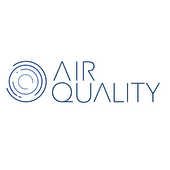
Development of a market introduction navigator for subscription business models in the manufacturing industry
The aim of the “SubaSa” research project is to develop a market launch navigator for subscription business models, especially for SMEs in the manufacturing industry. For this purpose, ways for the successful design and establishment of the business model are developed based on the four dimensions of marketing.
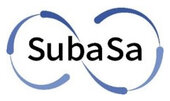
Design of an approach to the use of shadow IT for producing small and medium-sized enterprises
The aim of the research project Legitimise IT is to help SMEs in the manufacturing industry to use and legitimise beneficial shadow IT in a controlled manner, taking existing risks into account.

Development of a subscription canvas suitable for SMEs
The aim of the ‘SubscriptionCanvas’ research project is to support SMEs in the structured development of subscription model-based value propositions. For this purpose, a subscription canvas suitable for SMEs is to be developed, which enables a systematic and established procedure and will be validated by means of case studies, implementation guidelines and business games.

Energy Information Systems on the Internet of Production
The aim of the research project EIS4IoP is to improve and optimize the complex and non-transparent introduction of energy management systems by developing a design model for the introduction of energy information systems (EIS) as a decision-making aid.

Use of language assistance systems in the value chain of SMEs in the filed of machinery and plant engineering
The Smart Speaker research project focuses on the identification, evaluation and development of beneficial application scenarios for speech assistance systems in SMEs in mechanical and plant engineering.

Scaling of industrial services
The aim of the research project SkaDL is to provide a decision support for scaling services. In the case of SMEs, the choice of strategy has to be made taking into account their own business capabilities and goals, since only in this way can scaling be carried out in a resource-efficient and benefit-oriented manner.
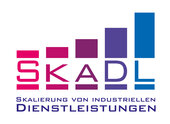
Flexible monitoring and control systems for the energy transition and mobility shift in the power distribution grid using Artificial Intelligence
The aim of the project FLEMING is to revolutionize the continuous monitoring of functions and in particular the current use of sensors in distribution networks by using methods of artificial intelligence coupled with an improvement of the associated sensor technology, and thus contribute significantly to the success of the energy and mobility turnaround in Germany.

Good leadership and work in sociodigital transformation
The joint project eLLa 4.0 aims to support leaders at different hierarchical levels in their leadership tasks during digital transformation, and to enable them to design good work in the digitized world. For this purpose, qualification modules are developed for different target groups, summarized in a training offering and, furthermore, new learning worlds for leadership development are being tested.

Development of a maturity model for the introduction to the platform economy
The aim of the research project FIT4Platform is to support SMEs in contract logistics, which currently use established business models, with the successful and low-cost implementation of digital platforms into their existing business models.

Development of an infrastructure for the research of industrial 5G
The research project 5G-Industry Campus Europe (5G-ICE) aims to establish a 5G research infrastructure on the Melaten campus of RWTH Aachen University and to establish it in production by implementing relevant industrial applications of 5G.

Intelligent data accounting for the determination of the entrepreneurial data value
The objective of the research project "Future Data Assets" is to provide monetary valuation of the corporate data. For this purpose, the development and instantiation of a so-called "data balance" is sought. The data balance should serve the reporting of the entrepreneurial ability of the data management and thus close a gap with respect to the classical reporting, in which data are hardly considered or systematically evaluated.

Development of a procedure to determine the IT-OT integration potential of a manufacturing company
The goal of the research project MarryIT is to support SMEs by a methodically guided survey and potential assessment of their IT-OT integration status. IT-OT integration describes the networking of shop floor systems (OT systems) with office floor systems (IT systems).
Provision of an evidence-based orientation framework for politics and business
The aim of the research project "Development and measurement of the digitisation of the economy in Germany" is to measure the digitisation of the economy in Germany in its complexity and to observe it over time.
Implementation of BaSys 4.0 for decision support via dashboards in manufacturing companies
The aim of this research project is to extend the open platform for the fourth industrial revolution, 'BaSys 4.0 - Basic System Industry 4.0', to a partially automated decision support based on dashboards in two user companies and to apply it. In addition, the secondary objective is to create a guideline that describes how these dashboards can also be set up and used in other applications.
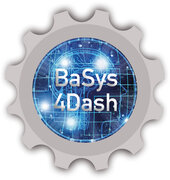
Dissemination of 5G potentials for NRW
The projected Competence Center 5G.NRW will assume the central driving function in North Rhine-Westphalia's development into the lead market for 5G and will act via the three following force vectors: the technical entry barriers for companies will be reduced, the economic potential for the vertical markets will be developed and the innovation diffusion - "5G and beyond" - will be accelerated. As a central contact point, the 5G.NRW Competence Center will be easily available to all players with an integrated package of measures.

Safe food chain through the application of blockchain technology
The overall objective of the research project is to increase the transparency and security of food production and logistics processes and structures via blockchain technology. To this end, the project aims to enable high-resolution traceability and at the same time ensure protection against counterfeiting.

Development of an autonomous technology scouting radar for small and medium-sized enterprises
The aim of the TechRad research project is to automate technology scouting in the form of a platform-based radar and to provide a permanently up-to-date overview of available technologies. The filling of the platform is realized by targeted web crawling aimed at technologies.

Digital solutions for industrial plastics cycles
The "Di-Link" project primarily serves the goal of realizing a resource-efficient, sustainable closing of cycles for companies in the plastics industry. In the "DiLinK" project, technologies are being developed and infrastructures set up to exploit the potential for the use of recycled plastics. This is made possible through research and development into innovative digital system solutions that are tailored to the problem at hand. The aim is to produce high-quality products from recycled plastics, to avoid plastic waste and to close material cycles in the sense of a circular economy. The digital system solutions involve in particular the development of innovative electronic equipment for data acquisition by sensors in the field of process measuring technology and the subsequent data processing and transfer by means of appropriate software solutions. This resource-conserving model of plastics use creates secure supply structures that enable the exchange of resources along the value chain, in which the use of secondary plastics is to be increased through cooperative collection, processing and distribution. This return to the material cycle makes a targeted contribution to waste avoidance and increased raw material efficiency.

Reduction of electricity generation costs using historical and current operating and service data of onshore wind turbines
The research project ReStroK deals with the question of how the potential of existing data sets of onshore wind energy plants can be used to reduce the electricity production costs of the plants by combining and analysing the data sets across plants. This increases the economic efficiency and thus also the competitiveness of the wind turbines compared to other energy production methods. The project results primarily enable SMEs from the wind industry to increase efficiency in the areas of maintenance and operation management.

REduce PArk-Search-Time - Reduction of parking search traffic through data fusion to services for short-term parkers (care and delivery services)
Parking traffic represents a considerable part of the municipal traffic volume. Particularly affected are employees who move their vehicles around the city for work reasons and need a parking space for a short period of time. The consequences of this are the re-legal parking of the vehicle in illegal stopping bays, entrances and exits or on the second row of driveways, which in turn causes further traffic disturbances.

Software-based automation of administrative processes using robotic process automation
The aim of the RPAsset research project is to identify suitable processes and technologies for SMEs in order to demonstrate an optimal integration strategy for robotic process automation (RPA) that adequately takes into account organizational and process-related as well as human aspects.
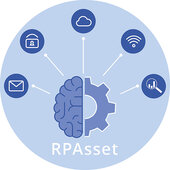
Implementation concept for business analytics in manufacturing companies in the food and feed industry
The aim of the research project "BAsuccess - Introduction Concept for Business Analytics in Manufacturing Companies in the Food Industry" is to develop an introduction concept for Business Analytics for SMEs in the food industry. The planned concept should enable SMEs to make data-based decisions in order to remain competitive in the long term. The project is carried out by FIR at the RWTH Aachen, the Research Institute for Management, Logistics and Production at the Technical University of Munich and the International Performance Research Institute (IPRI).

Hybrid Project Management
The aim of the FuturePro research project is to design a holistic project management system (PMS) for development projects of small and medium-sized enterprises (SMEs) in mechanical engineering and plant construction, which serves SME-specific requirements. The PMS should provide companies with an optimal mix of existing and further developed project management approaches (PMA).

Tool-supported approach for the establishment of a systematic spare parts management in SMEs of the manufacturing industry
The aim is to increase the profitability of SMEs in the manufacturing industry by developing a tool-supported decision-making aid for the implementation of systematic spare parts management.

Learning in the digitised world of work
The aim of the joint project LidA - Lernen in der digitisierten Arbeitswelt - is to enable employees for the working world of the future and the challenges of digital change in companies in the long term. Within the framework of the joint project, future competence requirements are forecast and prepared in a competence navigator in such a way that individual learning paths can be developed. The individual teaching and learning modules are embedded in a didactic concept tailored to needs and made available on a teaching and learning platform with broad impact.

Mobility 4.0: Efficient rail freight transport on the basis of a collaboration platform with the help of digital train clearance
The aim of the research project is to increase the utilisation intensities of underutilised railway wagons, locomotives and lines in rail freight traffic by digitising train clearance. Digitally supported train dispatching enables the locomotive and its coupled wagons to be located continuously. By enriching the digital process data with additional context information of a transport journey, a digital shadow of rail freight traffic and associated services is created. This is the starting point for the improvement of process efficiency and the identification of further potentials in the direction of the industry objective Mobility 4.0. As a research institution in the field of business organisation and IT in the context of logistics, the overarching subgoal of the FIR is to create the basis for increasing efficiency in rail freight and intermodal transport and to point out the resulting potentials.

Design of a hybrid business model including the possibilities of digital platforms for the SME of mechanical engineering
The research goal is the development of a procedure for the establishment of hybrid business models including the possibilities of digital platforms for the SME of industrial engineering.

Load Based Monitoring and Maintenance - Optimization of the operation of onshore wind turbines by a load guided monitoring system utiizing torque sensors
The aim of the research project "LBM²" is the development of a low-cost and easy-to-use wind turbine (WT) monitoring system utilizing two software-based modules to optimize the operation and maintenance planning of the entire wind farm (WF).

Decision support in short-term production control
The research objective of the AiF project "EkuPro" is the conception, development and evaluation of an app and simulation platform which supports production controllers in the objective selection of compensatory measures against delivery delays.

Joint project "Inner-city mobility platform based on autonomous PeopleMover"; Subprojects "Business Models and Implementation".
The aim is to design and pilot a novel, intelligent inner-city mobility solution. A collaboration of innovative SMEs from the structurally weak urban region of Aachen is herewith funded to implement this. The result will be an integrative customer-centered service platform for autonomous electric shuttle, so-called "PeopleMover".

Implementation of Industry 4.0 in the textile process chain
The goal is achieved by exchanging data between the companies involved in the process chain and the neutral operator of a legally protected cloud service.
Analytics based marketing support for technicians in the field service environment
The aim of the Sales Service project is to integrate service technicians in the active distribution of services and products and thus to exploit the sales potential arising from their regular and intensive customer interaction. For this purpose, an analytics-based sales support for service technicians (algorithms for open source software) is designed, which provides them with the necessary sales information. In addition, the structure and process organization (Blueprints & Reference Processes) and the corresponding management tools (Balanced Scorecard & Incentive System) are developed for a sales-oriented service.

Cloud-based Energy Management for an increased Energy Efficiency in Manufactoring Companies
The goal of eCloud is to empower SMEs to implement flexible energy management that is prepared for current and future challenges in the area of ??energy use, without deepened energy knowledge and with little distraction from the day-to-day business.

Analytics4Innovation
The objective of the planned project is to enable small and medium-sized enterprises (SMEs) from the engineering sector to develop innovative value-added services from their available data together with their clients within a short time.

3Dprint-Supply Service
The aim of the research project is to provide industrial companies barrier-free, reliable access to the 3D production of spare parts and components. The 3Dsupply project is designing a generic reference model for a highly flexible supply network for 3D printed spare parts.
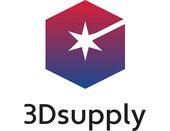
Exporting blended vocational education and training for industrial process design and optimisation into the Mexican automotive sector
The objective of the E-Mas joint project is to develop and export offerings for further education for and into the Mexican automotive industry. Mexican employees will be taught skills in the areas of workplace learning, productivity management, tool-and-die making and lean management. Thus, they will be prepared for industrial challenges due to digitisation. By achieving this, the project will support further growth of the Mexican automotive industry. In addition to that, service design for vocational education and training offerings for the export will be addressed and transferred into a digital planning tool.

Service Release Management
The aim of this research project was the development of a service release management system, which allows SMEs to systematically identify the necessary changes to their AS-services in the small-scale production of mechanical engineering and to implement these efficiently in a service release.

Self-Learning Production Control using Algorithms of Artificial Language
The aim of iProd is the development and validation of a solution concept which, within the scope of Industrie 4.0, exploits the technical possibilities of digitization. The digital image of a production is the basis for the holistic analysis and evaluation of the automatically recorded data. On the basis of the examined patterns in the production system, exact predictions of the future system behavior can be made while taking account of influencing disturbing factors and accompanying deviations.

Determination of the carbon footprint of different drive concepts of production facilities
The projects aim was the development of a procedure with integrated calculation sequence which specifies the ISO 14067 and optimises the carbon footprint of fluid powered and electromechanical linear drives. This Method was implemented into a calculation tool which follows the needs of SME to estimate the climate impacts of a planned facility with little effort.
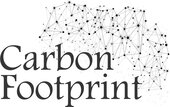
Nachhaltige Sicherheitskultur als Transformationsansatz für Industrie 4.0 in KMU
SiTra 4.0 is aimed to develop a transformational approach for the establishment of a sustainable security culture for industry 4.0 in SMEs. This new security culture will be characterized by respect and trust, ethical standards between the actors, freedom, to take risks and to promote the intelligent use of implicit and explicit knowledge in digitized working processes.
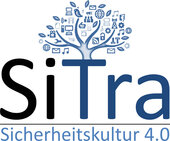
Decentralized Production Based on Additive Manufacturing and Agile Logistics
Within the add2log project, an inter-company software-based platform, which provides central coordinating functions for an emerging value creation network between manufacturers, logistics providers, and third parties, will be developed and implemented as a prototype. The platform makes it possible to combine and integrate the potentials of additive manufacturing and agile logistics, resulting in new business models.

Energy Knowledge Management for cross-company optimised energy usage
The aim of the project EWIMA is the prototypical construction of regional virtual power plants in NRW. The approach pursued is the further development of operational energy management for a cross-company optimization of consumption, generation and storage of energy in the direct company neighborhood. key innovation is a central IoT platform that enables complex functions and services.

Methodology for the modularization of complex developement activities of services in industrial services
Goal of this project is the development of a methodology for designing process toolboxes and standardizing value creation processes based on optimized cost-/benefit ratios for the industrial services industry. By means of the project results especially small and medium-sized companies should be enabled to increase the efficiency of their value creation processes systematically. The results should support companies to select and implement measures for increasing efficiency based on cost-/benefit rations of measures.

Development of an adaptive production control for the systematic deviation management of small batches.
The aim of the project was to develop a decision support system for the production controller which allows a more detailed consideration of deviations in production. Furthermore, evaluating deviations makes it possible to determine which deviations urgently require action and what kind of intervention should be made. By taking account of decisions regarding deviation situations from the past future deviations can be better assessed.
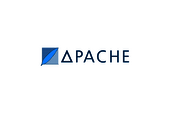
Quality assurance and cost models supporting the wide spread use of additive manufacturing
The goal of AM4Industry was the development of a holistic cost-benefit-model which enables the user to decide whether or not to use Additive-Manufacturing-Technologies from an economic standpoint.
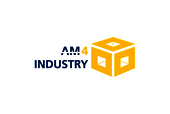
Developing new services based on digitization – identifying methods, seeking opportunities and disseminating results for the implementation of smart services
The goal of the Digivation project is to create generic and practicable best practices for the development, marketing, and performance of digital services. The development of the methods is based on the close connection of digital process innovation with new concepts of service engineering, individualization, and customer participation.
Hereby the main objective of the Digivation project is to accelerate the digital transformation of the economy with the help of service innovation. Based on this integrated perspective, Digivation supports collaborative projects of the funding line service innovation based on digitization by helping them with the preparation and the transfer of their project outcomes.

Selbstlernende Suchmaschine für ERP-Systeme
The aim of the research project was to increase the efficiency and effectiveness of search queries in ERP systems. Hereby, it reduced the effort for the user and improved the quality of the results. The achievement of the goals was realized by the development of a self-learning, context-based search engine for ERP systems. By taking into account the context of a search query, user behavior and a results evaluation by the user, the result quality of search queries was continuously increased. The development of a demonstrator was intended to show the usefulness of the concept by testing it in different scenarios and evaluating it by means of an economic assessment.

Increase of profitability by innovation and implementation of sustainable business models for SMEs
The goal of the project was the development and testing of an integrated methodology for business model innovation and implementation, which meets the special requirements of SMEs in the background of the green economy.
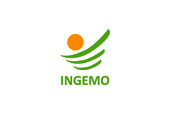
Development of a typology for the life-cycle orientated management of business internal communities of knowledge-intensive service providers
The aim of the research project ToMiC is the development of a typology for the life-cycle orientated management of business internal communities of knowledge-intensive service providers. This will enable small and medium sized enterprises (SME) to identify the current stage of life of their own social software based community for the first time. Based on this, individual management instruments can be identified and recommendations for action which maximise the use of the community for the company and prevent its failure can be derived.
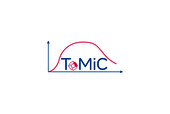
Modellbasierte Einsatzplanung von Enterprise-Content-Management im Maschinen- und Anlagenbau
Rezept ECM's goal was to help companies in the mechanical and plant engineering industry achieve a holistic ECM concept to meet the current requirements for digitalization. An application-oriented model has been developed as an orientation aid for the establishment of a company-wide ECM concept which takes into account the existing IT landscape and the operational sequences.
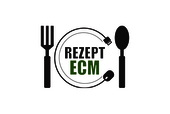
Self-directed use of personal data with inherent privacy and data protection
The aim was to provide a data cockpit in which users are able to decide on the transfer and utilization of sensitive data. They are also able to formulate preferences for privacy protection. The cockpit provides information and assessments on personal privacy risks to accomplish a certain sensitization for that topic. If personal data are used for commercial purposes, users will have the opportunity to become involved in the proceeds by "Micropayment".

Industry 4.0 Maturity Index
Target of the project is an Industrie 4.0 maturity index which enables companies to assess their actual status of Industrie 4.0. With the assessment companies are assisted by an individual roadmap to build their own Industrie 4.0 roadmap.
Energy-efficient and safe communication network for the internet of energy
The target of the research project "eSafeNet" was the investigation, conception and demonstration of an innovative information technology communication approach for the internet of energy. Basically, potentials of a dedicated communication infrastructure were analyzed considering mobile communication as main technology and tethered transmission technology, e. g. powerline, so that safety relevant structures for stability, reliability and safety meet the requirements. To guarantee the economic efficiency, a service platform was designed which provides safety relevant and additional smart services by service providers.

Overcoming shortages of resources in servicing business of small and medium-sized enterprises in the area of mechanical engineering by the digitalization of service processes
The central research target of the project ScaleUp was the development of digitalization navigator for small and medium-sized enterprises. The navigator supports companies to overcome shortages of resources for after-sales services by identifying and suggesting specific digital technologies as well as matching providers.
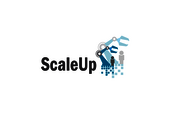
Customer-Service-Scorecard 2.0 – Self-Assessment-Tool zur Analyse des Nutzens von Social Media im Kundenservice bei KMU
The aim of the CSS 2.0 research project is to support small and medium-sized enterprises (SMEs) in improving the efficiency and effectiveness of their customer services through the use of social media. For this purpose, a self-assessment tool will be developed to evaluate and forecast the benefit contribution of social media use in customer service. The research project focuses on the external use of social media at the interface between companies and customers.
Cross-vendor networking of machines in agricultural crop production with the help of a service platform
The project targeted a connection of machines across manufacturers in the agricultural sector with the help of a service plattform. The plattform offers context-sensitive smart services based on intelligent systems to improve the productivity of the agricultural crop production.
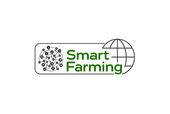
Digitalisation support for small and medium enterprises
Overall target of the Industrie 4.0 competence center is to enable SME to efficient and and effective processes along the value chain by digitalization and connectivity. The three hubs Ostwestfalen-Lippe, Ruhr and Rhineland cover the target region of North Rhine-Westphalia.

Developing an approach to optimize the prices of availability guarantees for small and medium sized enterprises of machinery and plant construction
The aim of the project is to develop an approach for determining the optimum price of availability guarantees for small and medium sized enterprises of machinery and plant construction.

Implementation of Service Analytics to sustainably increase the service profitability in mechanical engineering SMEs
The objective of this research project was the development of well-suited analytics algorithms for the phases of the management of industrial services in mechanical engineering companies as well as the embedding of these algorithms into an SME-appropriate procedure of Service Analytics.

Employee-focused management of the transformation from producing SMEs towards solution providers
The overall objective of fit4solution is to support the strategic change of small and medium-sized companies (SMEs) from a manufacturing company to a solution provider. By this transformation an increase of the competitiveness through differentiation is permitted.

Developing an approach to transform the manufacturers of technical building equipment to providers of smart building solutions in the field of office buildings
Target of the project Smart Building is the development of data driven services for smart buildings and in particular for office buildings. An approach will be developed that enables small and medium enterprises to utilize the potential of smart buildings in a structured way. Therefore, a catalogue of data driven services and a guideline including a toolbox to plan, steer and control the transformation process will be developed.
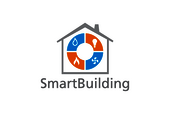
Innovative energy plattform of flexibility to synchronize and commercialize the regional power consumption of industrial users with decentralized energy production in the exemplary region of Aachen
The research objective is the conception, development and prototypic implementation of a platform for the integration of industrial consumers as flexibility cluster and decentralized producers of renewable energy, that will be concluded in so called virtual power plants.

Win-win-win situation for manufacturing companies, energy suppliers as well as mechanical and plant engineers
The central aim of this research projekt is to design a communication platform for the exchange of relevant informations between producing SMEs, electricity utility companies and machine builders. For this inter alia a business and process model will be developed which makes the EIH attractive for all participations.

Development of a method to support mechanical engineering SMEs with the implementation of Industry 4.0 concepts in the CAD-CAM-NC process chain
The goal of the research project "DigiKMU" is to enable small and medium-sized mechanical and plant engineering companies to align their corporate IT strategically to achieve business objectives through industry 4.0 concepts in the field of the CAD-CAM-NC process chain. For this purpose a type modelling maturity model is developed on the basis of which SMEs can conduct a self-assessment and derive recommendations for the realignment of their corporate IT.

Complexity oriented decision model based on evolutionary algorithms
Under the requirement of the best return rate within product service systems, the aim of the project is to develop a decision model for planing procedures of PPS.
Energy-efficient, low-wear, maintenance and acoustic optimized, cost efficient bogie
The EVIAK DG projects´s goal is the development of an engergy-efficient, low-wear, maintenance and acoustic optimized, cost efficient bogie. In contrast to current bogies which are not successful in the marked due to a lack of economic benefits, EVIAK DG will be supported by a maintenance concept and LCC-model.
Development of an intelligent and efficient disposition tool for interactive and dynamic task and ressource planning for offshore wind farms
The project's aim is to develop new planning strategies for requirement-meeting and efficient maintenance of offshore wind farms. It will be the first time, that task- and resource-management between spatially separated wind turbines is enabled under inconstant operating conditions and unplanned events. An issue-related and spatial visualization provides an objective decision basis for the operator's disposition directives and route optimization.
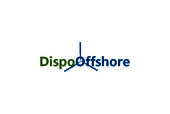
Planungsunterstützung für wandelbare Produktionsnetzwerke
In order to circumvent existing trade barriers, the Completely- Knocked-Down (CKD) strategy has prevailed in the automotive industry. Instead of an export of fully built up they were exported decomposed to the markets and assembled locally there. Objective of "CKDCHAIN" is the transfer of this concept to companies of mechanical engineering by developing a simulation-based configuration support.
Integrative software solution for an intelligent, demand-oriented maintenance management in complex production surroundings
Modern production nowadays shows a growing shortfall of maintenance management and maintenance tools, which is why the SmartMaintenance project plans to develop a novel software solution for maintenance management which takes the condition of machines in real-time into account as well as the latest production plans. Thus, it aims to present the complex problems of decision making in terms of maintenance in one modular software tool and to find global optimized solutions via specific constraint-models. Various factors such as information about the condition of the machines, the dynamic disposition of the maintenance resources and the adaptive reconciliation of the production planning are important factors that influence decisions on maintenance and need to be factored in.

Big-Data and event-based adjustment for the configuration of resilient production systems
Project goal is the development of a Big Data platform including algorithms for data pattern detection to implement a proactivce disturbance management system in the production. Human data is considered as an additional data source. The disturbance management is further supported by an visualization of the disturbances and respective counteractions.

Value-based order processing in mechanical and plant engineering
The aim of this research project is to develop a demonstrator in the shape of an online-analysis tool which actively supports SME’s optimisation of Working-Capital-Managements. Based on quantitative simulation results and qualitative portfolio prioritisation, a standardised method shall become operative to develop case-related recommendations for action. A mathematical model of reference will form the basis which will, taking specific logistic strategies into account, identify improvement potential within the order processing process.
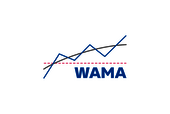
Development of a practice-oriented method for a systematic assessment of IT-processes for small and medium-sized IT-service providers
The goal of the research project “Grade IT“ is to develop a practice-oriented method for a systematic assessment of IT-processes for small and medium-sized IT-service providers. This assessing method enables IT-providers to present their IT Services more transparently and to identify weak points as well as to develop potentials that can be used to derive strategic methods for optimizing the IT-processes. This goal can be achieved by means of the development of a SME-specific maturity level model that has a consistent system of tension metrics for assessing IT-processes.
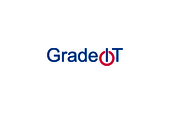
Lean Performance Assessment für industrielle Services
The objective of the research project LePASS is to enable small and medium-sized enterprises (SMEs) of the industrial service sector to increase their performance in terms of their productivity. Therefore, one major goal of the project is to develop a maturity level based assessment tool which enables small and medium-sized industrial service providers as well as manufacturing companies which offer industrial services to determine their status quo with regard to the implementation of the Lean Services principles within the company.

Engineering and mainstreaming of learning-friendly industrial work systems for the industry 4.0
Within the BMBF funded project ELIAS an approach to the design and configuration of learning friendly work and production systems will be developed. In doing so the objective is to provide service as well as manufacturing companies a universal approach, which also takes the external economic, technological and social conditions into account.
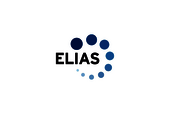
Modular Solutions for the middle class to boosting their own integration of e-Business-Standards in complex Supply-chain-process
The aim of the project is the analyses of the use of eBusiness Standards in companies. Identification of typical sets of standards in use for characterisitic problems. Development of formal guidlines and toolings to enable companies to derive a optimized usage of eBusiness Standards.
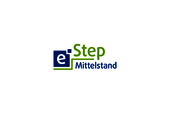
Sensor-based real-time simulation for machine part specific analysis and evaluation in the context of a synchronized and condition-based maintenance
The aim of this research project is to propose a suitable maintenance strategy for manufacturing SME so that they might anticipate machine failures.
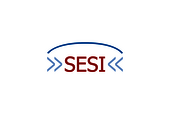
Development of a description and evaluation approach for service variants for the portfolio planning for industrial services
The main goal of the project is the development of a description and evaluation approach for industrial service in the framework of portfolio planning. The competitive ability of SME shall be strengthened through an approach for the variant management of industrial services.

Service Synchronisation via Takt
The aim of the research project is the development of a concept for synchronization the service delivery using the method of takt. This approach will allow SMEs to match their specific processes of service delivery optimally in order to increase productivity, without having to invest in a costly planning and control system.
Ecological and Economical Production
As a follow-up project of eco2-cut, eco2production was aiming to support companies in their goal to achieve an holistic optimization of their energy consumption. Therefore the following 4 objectives were given: Development and implementation of an energy-monitoring-concept, benchmarks of machines and processes as the foundation for the energetic optimization of the value chain, formulation of the necessary modules of an energy-management-system and the development of an energy efficient production planning.

Development of a risk management system
Smart Logistic Grids aims to develop a risk management system, which offers better action alternatives within supply chain networks on the basis of improved information availability and smooth integration of various supply chain partners. An integrated model of adaptable logistics networks will be developed in order to reach extended strategic, tactical and operational planning and regulation of supply chain logistics. The model will set the basis for the evaluation of disorders and provide appropriate interference suppression. A prototype of the risk management system will be implemented in the form of a supply chain operations room and a global supply chain event cloud as part of the Smart Logistics Cluster at RWTH Aachen University.

Future INternEt Smart Utility ServiCEs
The objective of FINESCE was to:
Transform Energy infrastructures towards Smart Energy systems by trialling network enabled applications using common functionality provided by Fi-WARE, developing novel service layer enhancements encapsulated in the FINESCE-API, and by enabling the development of innovation opportunities for ICT and Utility actors as well as in the community providing public services.
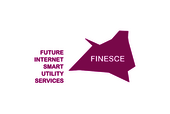
Development of a decision model for the creation of production ramp-up
The goal of the ramp-up management graduate college is to guard the ramp-up management against/over the systematic improvement of individual decisions. Junior staff scientists should be trained to experts, over the education character of the graduated college in regard of the behaviour of a concrete decision problem, the ramp-up management.
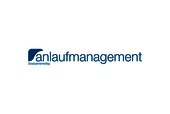
selfoptimizing and ordertype-related cybernetics of the order initiation in overload situations of small and medium-sized enterprises with a huge amount of short-term incoming orders
The main objective of the project was the design of a decision support for the order initiation of small and medium-sized enterprises with a huge amount of short-term incoming orders in overload situations.

Service Modularization - Development of a methodology capable of a multiple-criteria analysis and a modularization of industrial services
Goal of the research project was to develop a methodology capable of multiple-criteria analyses and modularization of services in product-service-systems, consisting of physical products and services. The development should be carried out with integrative consideration of products, processes and resources as a foundation for efficient product-service-system configuration. In order to ensure a user-optimized and SME-compatible transfer of the results the developed methodology was implemented into an IT-tool capacitating the efficient usage of the results.

Sustainable workforce development of the cement industry in Russia
The project aims to achieve sustained success with the distribution of training and affiliated consulting and research services in the Russian market. Within the project a concept and methods in order to design online self-study programs for training and development of industrial and technical staff, multi-week courses for foremen and masters as well as single and multi-day seminars and workshops will be developed, implemented and offered to the cement industry and related Industries in the target country Russia.

Energy Forecasting
NRG4Cast is developing real-time management, analytics and forecasting services for energy distribution networks in urban/rural communities. We are analysing information regarding network topology and devices, energy demand and consumption, environmental data and energy prices data

Sub-Project D-1 "Cognition-enhanced, Self-Optimising Production Netwoks" of the Aachen Cluster of Excellence "Integrative Production Technology for High-Wage Countries"
The Aachen Cluster of Excellence "House of Production" aims at controlling the complex interplay of heterogeneous processes in a highly dynamic environment in high-wage countries. The central hypothesis in the sub-project D-1 is that establishing mechanisms of self-optimisation leads to a quicker achievement of an optimum under changing input parameters. The Vision is to design a viable and changeable production management system to improve the dynamical adaption to optimal operating points.
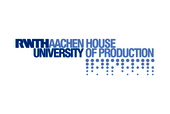
Optimization of the selection process of document management systems in MNEs, through the development and integration of usability-criteria
The goal of "uSelectDMS" is to make usability of document management systems (DMS) describable and to integrate those usability-criteria into the software selection process of MNEs by identifying and evaluating usability-criteria with the help of DMS users, developing an evaluation technique for usability in the context of DMS and deriving a suitable selection method.

Development of an integrated concept for intelligent condition monitoring of offshore wind farms
The overall objective of this project is to establish the organization as well as technical requirements for onshore remote management for condition monitoring of offshore wind farms. For this purpose, an integrated approach on intelligent condition monitoring is developed.
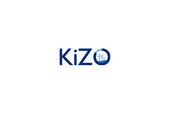
The context-aware and user-centric information distribution system for manufacturing
Sense&React aims at developing methods and reference architecture for enabling intelligent management of manufacturing information in real-time by implementing and utilizing a factory wide sensing and ICT end-to-end infrastructure.

Use of Information- and Communication Technology
The aim of the transfer-project "e-Business-Lotse Aachen" is the empowerment of regional companies to make well-considered and self-reliant decisions concerning the launch and use of information and communication technologies. This aim is supported by providing empowerment-dialogues, series of lectures and guidelines to enhance the competitiveness of companies regarding the use of new information technologies.
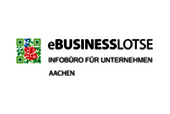
Rheumaportal21: Neue Chancen für eine bessere Rheumaversorgung im 21. Jahrhundert
Ziel des Projekts ist es, unter Einsatz von Informations- und Kommunikationstechnologien sowie Bildung eines sektorenübergreifenden Netzwerks die Effektivität und Effizienz der rheumatologischen Versorgung zu verbessern. Hierdurch wird eine frühzeitige Diagnose und Therapie rheumatologischer Krankheiten ermöglicht, durch die funktionelle und strukturelle Schäden am Bewegungssystem, krankheitsbedingte Komorbiditäten und die daraus resultierenden, hohen Kosten für das Versorgungssystem vermindert werden. Die Umsetzung soll zunächst in der Stadt/Städteregion Aachen sowie den angrenzenden Kreisen Düren, Heinsberg und Mönchengladbach erfolgen.

High-resolution production control based on cybernetic support systems and intelligent sensors
The aim of this research project is to develop a high-resolution, adaptive production control based on cybernetic support systems and intelligent sensors. In this context, the control systems should be formed in such a way that these support the person as a decision-maker optimally to control the production by means of high-resolution data and intelligent visualization to increase with it the efficiency of the production with sustainability.

Szenariobasierte Planung und Entwicklung des Dienstleistungsprogramms in der Windenergiebranche
The aim of the project was to assist project developers, service providers, and manufacturers as well as component suppliers of wind turbines in optimizing their service offerings in response to the current and future market conditions and resource availability.

Self-Optimizing Control of product-related material procurement
This project aimed to develop a valid and comprehensible decision support for choosing a material planning logic, according to the respective situation and the defined objectives. Further, the decision support should be combined with existing, adaptive material planning methods within present IT-systems. Thereby a self-optimizing procurement characterized by the interaction between material planner and IT-system should be reached and enable a dynamic adaption to the dynamic environment.
Wertorientiertes Management von Technologiearchitekturen
The project WOMTA aimed to expand the implementation of business application systems from a purely functional view for technological and strategic aspects. Therefore both the compliance with the current IT-architecture and the ability of the entire application environment to succeed in the future were considered.

Value oriented design of master data management
The aim of the project STAIRS was the creation of benefit transparency in the field of master data management; the effective relationships between the areas of influence, data quality and business processes should be simulated within the framework of a new, interactive simulation game, which should be implemented in the innovation laps of FIR. It should make the benefits of high data quality perceivable in practice.
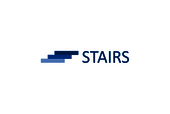
Development of an instrument for the targeted use of specific methods and tools for the efficient industrial service delivery
Main result of the research project "MIND - Methods Navigator to increase efficiency of industrial services" is the MIND-IT-demonstrator, which brings together methods and tools to increase efficiency in a comprehensive scheme for the management of service delivery of industrial services.

Adaptive logistics in a dynamic business environment
A model of recomendation for a customer-supplier interface which allows an adaptive logistics in a dynamic business environment.

Design and evaluate the sustainable use of logistical concepts in industrial networks
In Green-Net, a method to support decisions on selecting and implementing logistics concepts which takes into account was developed. This was be done by developing a method for the quantitative ex-ante-evaluation of the influence of logistics concepts on economical and ecological parameters.
Re-design and interface standardization in signal technology
The aim of the NeGSt project was to develop solutions for urgent challenges that are important for the entire German sector, which contribute to securing the sustainability of the LST and thus make mobility and transport more attractive and competitive in the long term.

Supply-Chain-Exellence in the consumer goods industry by adaptive planning proccesses and RFID source tagging on case level
Smart.NRW aimed at creating an RFID-based self-optimizing Supply Chain. Therefore following results were developed: Method for automated determination of optimal transponder type and position, production technologies for integration of RFID transponders into cases and adaptive planning and control mechanisms for optimizing and stabilizing the supply chain.
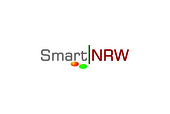
Future Internet Smart Energy
In the FINSENY project, key actors from the ICT and energy sectors teamed-up to identify the ICT requirements of Smart Energy Systems. This led to the definition of new solutions and standards, verified in a large scale pan-European Smart Energy trial. Project results contributed to the emergence of a sustainable Smart Energy infrastructure, based on new products and services, to the benefit of all European citizens and the environment.

Sustainable value creation in manufacturing networks
The project developed governace and business models, a new methodology to support sustainable life cycle decisions and sustainability assurance performance standards for complex business processes in integrated production and service networks.

Overall-Service-Efficiency
Purpose of the OSE research project was the development of a measurement model which aimed at making the order processing efficiency of industrial services ascertainable and assessable based upon types of waste. Therewith, the basis was laid for well-directed and efficiency increasing improvements.

synergetic, interactive and self-organized E-Learning in medical engineering companies
The goal of this project was the development, implementation and trial of a knowledge communication and learning environment (SISE platform) for manufactures, using the example of the automotive engineering industry and taking advantage of web 2.0-technologies.
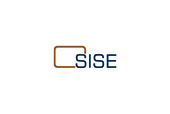
Strategies for the integration of technologie into human-related services
In our society individual-related services are gaining ever more importance. Supplying populace with these services at high quality and reasonable costs requires making the service delivery more efficient. Thereto using modern technologies in the service delivery process is a promising option. But still there are some obstacles to overcome.

Development and implementation of a norm enabling dealing with services
The objective of the project was the development and implementation of a norm, which should enable and simplify dealing with services. This forms the basis for e-commerce based services. The norm should include standards for description, classification, specification and evaluation of services.

Achieve a dynamic and standardized exchange of product master data between online-product-catalogues and ERP-systems
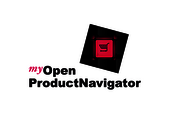
Battery management algorithms for LiFePO4 batteries that consider aging of the battery
Li-Mobility aimed at developing a battery management system that would allow prediction of the effects of using the battery for supporting the power grid.
Software and System platform for energy and environmental monitoring systems
The aim of the project was to design and realize service and cooperation concepts for a prospective operation of facilities for generating sustainable energies. Thereby the focus was on the three areas of wind-, solar- and bioenergy. This innovative and holistic approach addéd a significant value to design the “power plant of the future”.
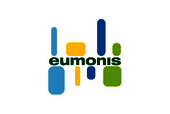
Versatile through integration potential and diversity
A superordinated goal of the research project WInD was the conception of a versatile production system for the branch of mechanical and plant egngineering. The coordination ability in production networks, which is very important for this branch , was supposed to be increased significantly.

Integrate returning product flows into existing structures
Rebound Logistics aimed at supporting small- and medium-sized manufacturing companies to efficiently integrate returning product flows into existing structures by developing design options for an integrated Reverse Supply Chain.
Information management in the sanitary craft for the constitution of optimized business processes
The goal of the research project was to develop an integrated information process model, which would structure and describe central craft order processing steps in a scientifically sound and practical way so that a seamless provision of knowledge would be possible situation-specific and at any time.

Intelligent rail infrastructure through innovative production guidance systems
The goal of the joint research project was the economic optimisation of the control and rail automation technology through a redesign of system structures and an improvement of existing value chains.

Integration of real-time simulation and monitoring for an status prognosis and error analysis in maintenance
The goal of the research project was to develop an integrated prognosis and analysis tool for the evaluation of machine status. Therefore, the condition monitoring and the real-time simulation were united in one system and were evaluable together for the first time.

Intelligent electro mobility in the internet of energy
The goal of Smart Wheels was the development of business models and convergent IKT-services for the distribution of electro mobility through the integration into the internet of energy and into the infrastructures of public services.
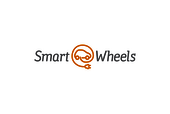
Measuring of the value proposition of enterprise-IT
The goal of the research project was to provide an opportunity for small and medium-sized enterprises to determine an individual value proposition for their enterprise-IT.

Overcoming of divergent target systems in enterprise networks in the consumer goods industry
The goal of the research project was the development of a procedure which enables the enterprise to indetify adequate SCM-concepts and their definitive combination ex ante.

Technology calendar for decision supporting of the application of identification technologies at middle-class enterprises
The goal of the research project ID-select was the development of a technology calendar as a tool for decision supporting in the area of applications planning for identification technologies for small and medium-sized enterprises.

Creation of an energy system of the future in the model region Aachen
The goal of Smart Watts was to optimize the complete energy value chain from generation, trading, distribution to consumption by enhancing it with energy related information.

Transferring measures for knowledge management measures
The goal of the transfer project WivU was to allocate methods, standards and the IT-system ProWim, which were developed in the project to a lot of small and medium-sized enterprises and to sensitise these for knowledge management measures.

Self diagnosis and increase of capacity for innovation in small and middle-class enterprises – Identification of success metrics of product accompanying service innovation
The goal of the SEEK-project was the identification of small and middle-class specific operationalisation of a successful service development and a valid determination of branch specific systematic service development as well as the definition of interbranch success metrics.

Development of a decision support for the supply management in strategic networks for small and middle-size enterprises of the textile and apparel industry
The objective of this research project was to develop a tool targeted for the demands of the textile and apparel industry for the selection and implementation of procurement strategies and SCM concepts. It should support independent persons for the different product classes in the apparel industry to configure, choose, implement individual SCM and procurement strategies and verify their use.

Safe and mobile communal infrastructure management - the example of the street
The superior aim of simoKIM was the increase of effectiveness and efficiency in managing municipal road infrastructures. For this purpose the object "road" should be considered in a broadened meaning, and for the first time an integrative communal road infrastructure management should be implemented.
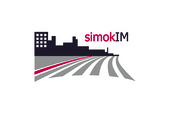
E-Health in der Notfallmedizin
The goal of the project was the optimisation of the whole resource process chain through the arrangement of a telemetric support system, and through the development of a marketready business model for respective enterprises.
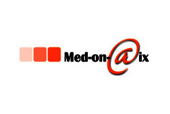
Development of a key data based benchmarking instrumentalism for the intercompany comparison in German owner-operator shipping for a long-dated guarantee of competitiveness
The project aim was to develop and implement an instrument in the network of KMU (owner boatmen enterprises), compounds and scientific accompanying research which puts the KMU in a position, based on key data, to implement target-orientated, time-efficient and anonymous an intercompany comparison, respectively a benchmarking.
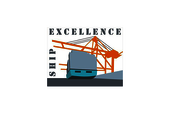
Partial project of production engineering excellence cluster at the RWTH Aachen
The goal of the HRSCM was to develop methods, which enable producing enterprises to focus early and proactively on different frame conditions through adaptive process creation.

Partial project of production engineering excellence cluster at the RWTH Aachen
The goal of the project was to create production techniques supporting a meaningful economic production in high-wage countries.

Integration of partly autonomous mobile machines and processes in business and service models
The objective of robot2business was to create a self organised behaviour in a dynamic environment.
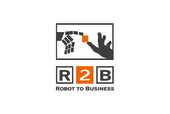
STandards in European Public Procurement lead to INnovation
The main objective was to stimulate innovation through reference to standards in public procurement. STEPPIN had to ensure that knowledge that is being created is attractive for purchasers and is written in their professional-language so they can use it. The purchaser is our client.

Business models for technology supported production-closed services of took and mould production
The objective of the research project TecPro was to support German tool and mould production manufacturer in the international competition with the definition of an interface for the data exchange between tool and machine.

RCM beginning for an identification of lifecycle orientated maintenance strategies for small and medium-size enterprises of the metal and plastic processing
The aim of the project was high equipment availability with preferably small costs by the optimal combination of maintenance strategies for small and medium-size enterprises.

Seal of confidence for RFID applications
The objective was to work out adequate criteria with which RFID applications can be proofed comprehensible and measurable. The attention was paid to the warranty of the individual demand on data security and privacy of RFID applications on which takes into account the consideration of trade interests.

Navi Navigation program for the introduction and implementation from TPM to KMU
The aim of the project was to develop a “TPM-Navi” which would tackle the existing problems which small and medium-sized enterpises have with the TPM concepts and which would enable them to use so the high potentials of TPM.
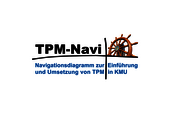
Integrated development of hybrid products
The goal of the HyProDesign was to create a development architecture for hybrid products which integrates the development running so far parallel and the marketing of material goods on the one site and services on the other.

Open Source Enterprise Resource Planning and Order Management System for Eastern European Tool and Die Making Workshops
The objective of the Tool-East-Project was the amplification of existing ERP-/PPS-systems with special ERP- and CRM-functions for an affordable implementation and in small and medium sized companies in Eastern Europe.

Technology supported internationalisation of medical services for patients of a foreign country
The objective of the project MEDICAL EXPORT was the development of methods and tools to open up the market of “medical services for patients from abroad to Germany” and took into account the requirements of the bid and asks quotes.

Innovation, Coordination and Collaboration in Service Driven Manufacturing Supply Chains
In order to integrate industrial services into manufacturing value chains, one goal of the InCoCo-S consortium was to develop a reference model (InCoCo-S Reference Model (IRM)) for business processes. This structured approach for the rationalization of processes in business practice comprises business processes, key figures and proven methods for measuring, evaluating and optimizing service performance.

MOBILITY AND COLLABORATIVE WORK IN EUROPEAN VEHICLE EMERGENCY NETWORKS
The goal of MYCAREVENT was an integratet mobile service in the automobile after sales market.

